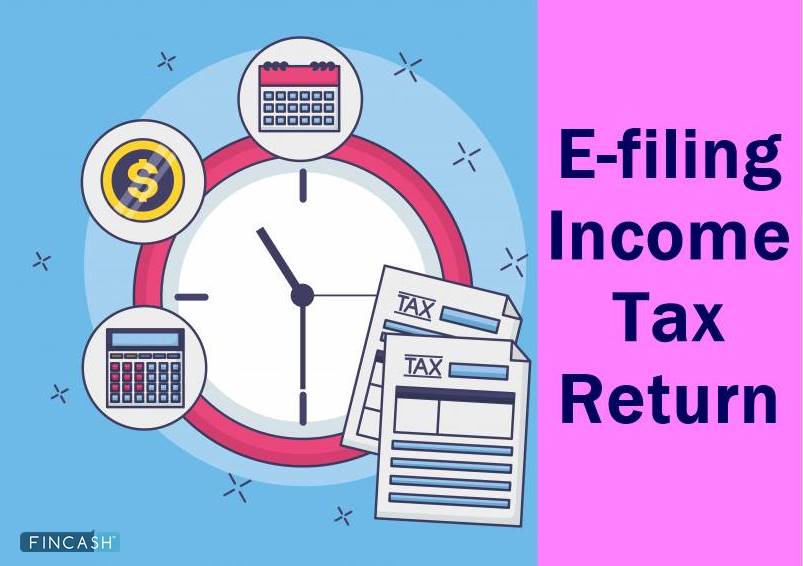Income Tax on Savings Bank Interest
Almost every individual has a Savings Account in the Bank where you can earn interest just by maintaining a minimum balance in the account. Such bank deposit schemes encourage people to save money as they are the safest avenue to park money. Once you deposit money, do you know if you are taxed on the interest you earn? Let's find out!

Deductions Under Section 80TTA
If you have earned interest from your savings account, then you can claim the deduction under Section 80TTA. It provides a deduction of Rs. 10,000 on interest income and this is available to an Individual and HUF.
Deductions Allowed under 80TTA
The deduction under Sec 80TTA is allowed on-
- Interest earned from a savings account with a bank
- A savings account with the co-operative society and Post Office
Deductions not Allowed under 80TTA
The tax deduction is not applicable to the interest received on:
- Fixed deposit
- Recurring deposit or any other time deposit
Talk to our investment specialist
How to Claim Deduction under 80TTA?
To claim the deduction under 80TTA, you need to add your total interest income under the head ‘income from other sources’ in your Income Tax Return. The deductions will be shown under Section 80TTA of the income tax act.
Saving Bank Deposit
In a savings account, individuals have to maintain a balance in order to earn moderate interest. After opening a saving account, banks put a restriction for the withdrawal and asks to preserve a minimum amount. However, an interest rate on a savings account is determined by the minimum average amount maintained in the account. The rate of interest may differ from bank to bank.
As per RBI guideline, interest on savings is calculated on a daily basis on the closing balance of each day. Even though the interest is calculated on a recurring basis, it will be credited to your account on a monthly/quarterly/ half-yearly basis.
Saving Account Tax Limit
If the interest earned from your saving accounts exceeds Rs. 10,000 then the extra amount will be taxable. For instance, Rahul earns Rs. 9,000 interest from his savings account, so he does not have to pay tax. Following the same, Manish earns Rs. 15,000 interest from his savings account, then he has to pay a tax for Rs. 5,000.
But, you should be aware of saving account tax limit. TDS on saving interest is not deducted like a fixed deposit or term deposit.
Fixed Deposit (FD)
Fixed deposit is designed for risk-averse investors. The deposited amount lets you earn interest for a fixed period of time. The fixed deposit interest rate varies from bank to bank, but the average rate of interest is around 4.50 to 8 per cent, p.a. It also relies on tenure. Almost every bank offers a rebate on FD interest for senior citizens.
FD Interest Taxable
You might think is FD tax-free? No, it’s not tax-free. Nevertheless, you can get tax free interest on FD, but you have to opt for tax-saving fixed deposits. Wherein, you can claim a deduction up to 1.5 lakh under Section 80C income tax act, 1961.
On the other hand, deduction under section 80TTA is not allowed on interest earned on fixed deposit. And, if you lock your FD for five years you may gain good returns, but the 5-year FD interest will be taxable. An income interest earned more than Rs. 40,000 in a year is taxable. The 10 per cent of TDS is deducted if you hold a PAN Card.
Recurring Deposit (RD)
Recurring deposit is one of the popular schemes offered by the banks. In this scheme, an individual has to invest a specific amount every month for a period of time and earn interest on their investments.
TDS on Recurring Deposit
You need to pay TDS if the interest earned on your recurring deposit is more than to Rs.10,000. TDS, also known as Tax Deducted at Source is applicable for Indian citizens, under the Income Tax Act of 1961.
Individuals with no taxable income should submit Form 15G to avoid TDS on fixed deposit and recurring deposit. The TDS will be 20 per cent if you fail to provide the PAN information to the bank.
Conclusion
Bank deposits have been the best option for people in India. It is safe and secured. You can obtain good interest rates on your deposits. But, make a note that these deposits attract taxes.
All efforts have been made to ensure the information provided here is accurate. However, no guarantees are made regarding correctness of data. Please verify with scheme information document before making any investment.












